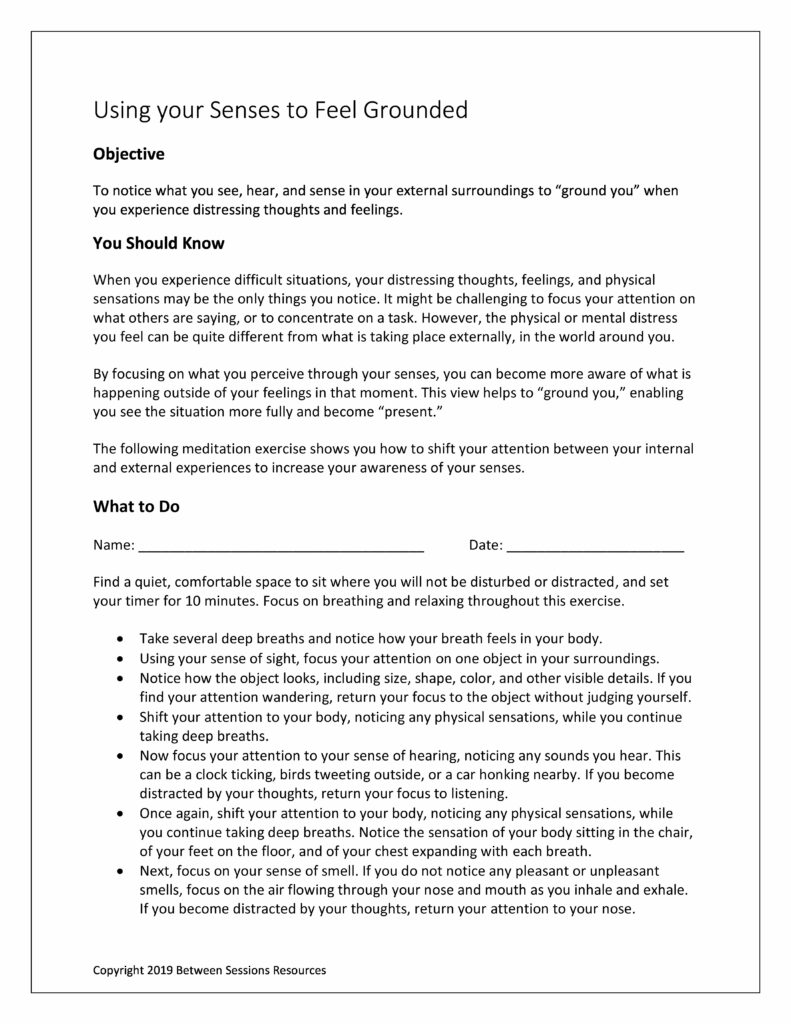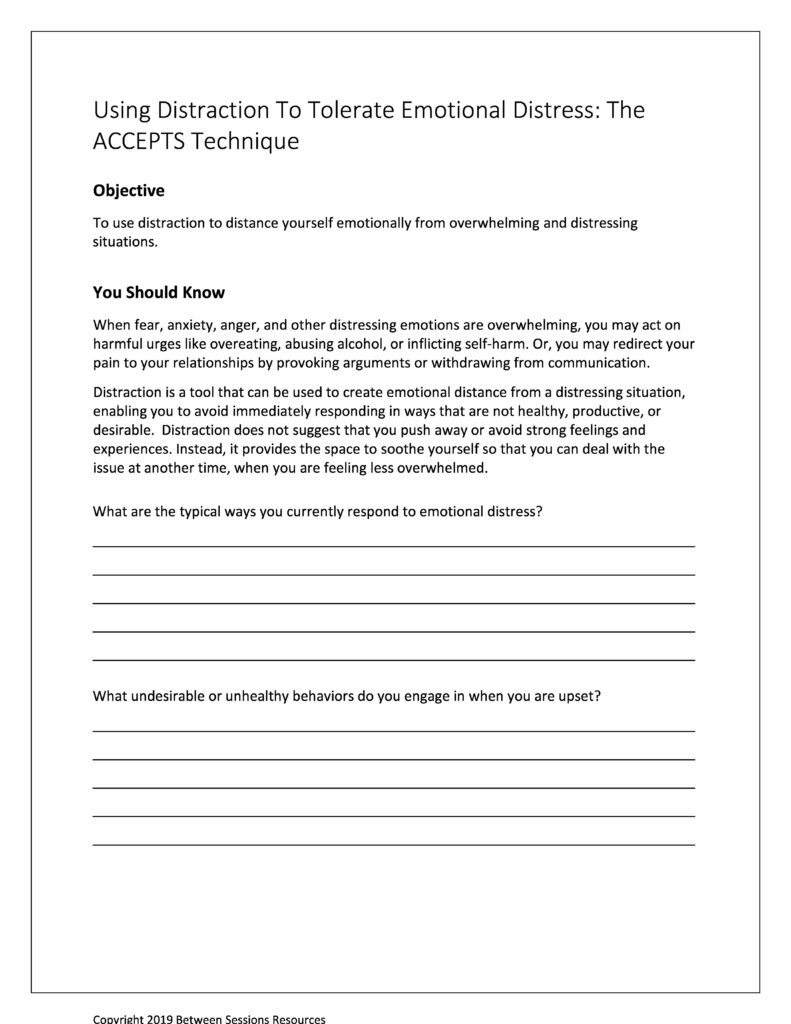This worksheet is designed to help people assess their emotions and compare their reactions and behaviors. (DBT, distress tolerance, emotional intelligence, 0220)
This brochure from the National Institute of Mental Health helps people distinguish between shyness and a diagnosis of Social Anxiety Disorder. It explains symptoms and treatment options. (0120)
This worksheet is designed to help feel understand what they can control in their lives and to develop a sense of self-efficacy. (DBT, depression, Bipolar Disorder, anxiety)
This worksheet helps people identify the social situations that make them anxious and understand their anxiety symptoms. It also encourages them to consider their motivation to change. (social anxiety, 0120)
This worksheet is designed to help people understand boundary issues and learn strategies to feel more empowered by setting limits, being self-protective, and taking safe risks. (PTSD, trauma, 0120)
This worksheet is designed to help people find strategies to have a better night’s sleep in order to improve their physical and mental health. (sleep, insomnia, 1219)
This worksheet is intended to help people use visualization to detach themselves from upsetting thoughts and feelings. (DBT, emotional regulation, 1219)
This worksheet is designed to help people deal with overwhelming emotions, depersonalization, and derealization. It directs people to pay attention to sensory input as a way of becoming grounded and feeling in control. (Bipolar Disorder, grounding, emotional regulation, DBT, 1119)
This worksheet can be used by people to help cope with overwhelming emotions. It describes the ACCEPTS method, a DBT technique, to help people experiment with various ways to distract themselves from upsetting and overwhelming emotions. (DBT, distress tolerance, emotions, 1119)
This worksheet teaches the importance of values and on basing goals and intentions on those values. It asks clients to identify their core values, think about goals and steps to live those values, and then rehearse them. (ACT, DBT, 1119)










